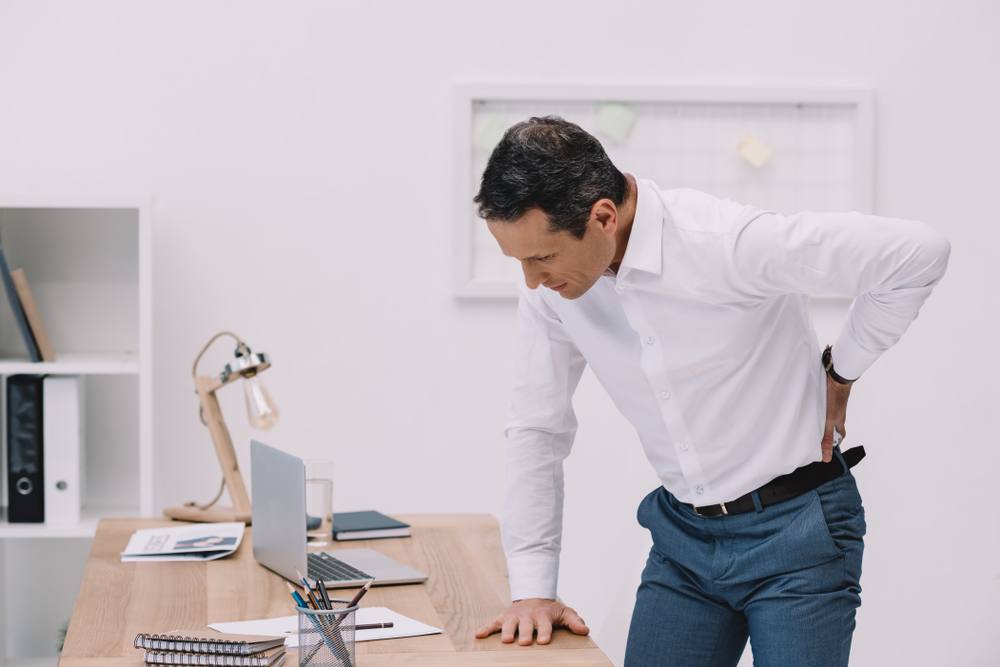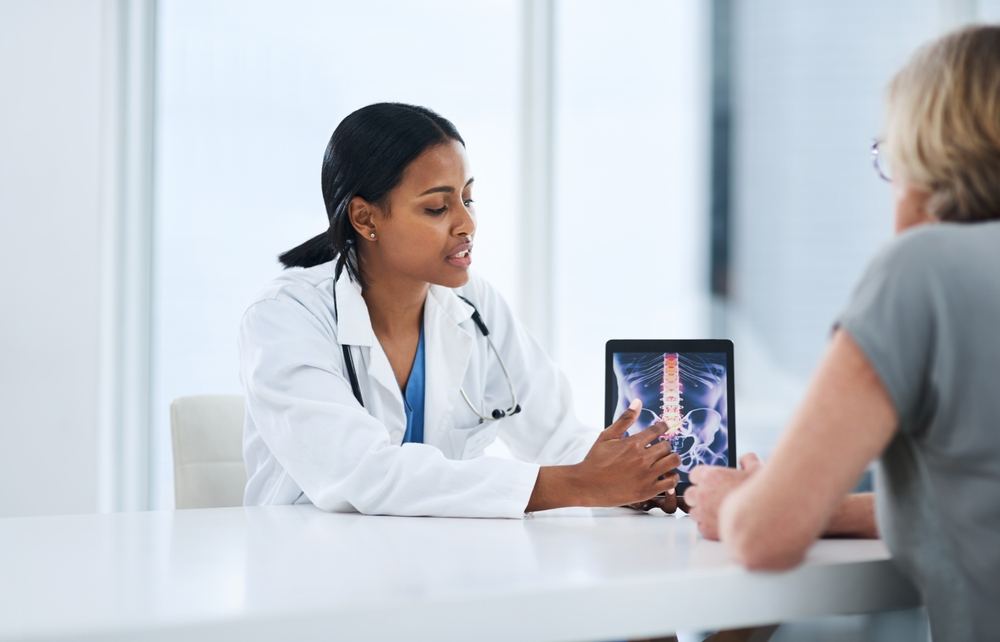
Car accidents can lead to a variety of injuries, with hip pain being a common complaint among survivors. Whether it’s a minor fender-bender or a more serious collision, the impact can put significant force on the body, causing trauma to the hips and surrounding areas. Understanding the causes of hip and leg pain after a car accident and seeking appropriate medical care is essential for recovery and long-term well-being.
Understanding the Hip Joint and How It Works
The hip joint is one of the biggest and strongest joints in your body. It helps you walk, run, sit, and stand by allowing your leg to move in different directions. The hip is a ball-and-socket joint, which means the top of the thighbone (femur) is shaped like a ball that fits into a round space in the pelvis. This type of joint gives your hip greater flexibility while keeping it stable.
Several parts work together to keep both the hip joints strong and moving smoothly. Muscles help you lift and rotate your leg, while ligaments and tendons hold everything in place. A smooth layer of cartilage covers the bones and acts like a cushion to absorb shock and prevent them from rubbing together.
Because your hips support most of your body weight, it’s possible for them to become injured and cause hip pain after a car accident. The sudden impact of a crash can cause pain by straining nearby muscles, bruising the bones, or even causing more serious damage like fractures or dislocations.
What Hip Pain Feels Like After a Car Accident
If your hip hurts after a car accident, it might feel different depending on the type of injury you’ve experienced. Some common types of hip pain after auto accident injuries include:
- Sharp, stabbing pain in the front or side of your hip, which could be a sign of a muscle or joint injury.
- Aching or throbbing pain that spreads down your leg or into your lower back, sometimes caused by nerve irritation or deep bruising in the area.
- Stiffness and trouble moving your leg, making it more difficult to walk, bend, or stand up.
- Swelling and tenderness, which might make your hip feel sore or sensitive to the touch.
- Pain that gets worse over time, even if it didn’t hurt right after the accident. Some car accident injuries can take hours or even days to show up.
Some people also notice their hip clicks, pops, or feels unstable when they move. This could be a sign of a more serious issue, like a dislocated hip or damage to the cartilage inside the joint. If you have hip pain after a car accident, it’s important to see a car accident doctor near you. They can figure out what’s wrong and help you get the right treatment so your hip can heal properly.
Common Causes of Hip Pain After a Car Accident
Here are five potential causes of your hip pain after a car accident:
Contusions and Bruising
Sudden and powerful trauma to the hip area during a car crash can cause contusions, which are deep bruises that appear on the skin with damage underneath. While less severe than fractures or dislocations, hip contusions can still cause significant pain, swelling, and tenderness in the affected area.
Soft Tissue Injuries
The muscles, tendons, and ligaments around the hip joint can suffer strains, sprains, or tears due to the sudden impact of a car accident. This can cause different types of pain in the hip area, along with stiffness and difficulty bearing weight on the affected side.
Labral Tears
The hip labrum is a ring of cartilage that surrounds the hip socket, which provides stability and cushioning to the joint. A car accident can cause the hip to twist or rotate forcefully, leading to tears in the labrum. This can cause sharp pain in the hip, along with a feeling of instability or locking.
Hip Dislocation
In high-impact collisions, the hip joint can be forced out of its normal position, resulting in dislocation. This can cause severe pain, swelling, and an inability to move the hip joint properly. Hip dislocations require immediate medical attention to prevent further damage and restore normal joint function.
Hip Fractures
The intense force caused by a car crash can result in a fracture, also known as a broken bone, of the bones that make up the hip joint. Different types of hip fractures range from hairline cracks to complete breaks, which can cause intense pain, swelling, and limited mobility.
Diagnosis and Treatment by a Car Accident Doctor

Seeking prompt medical attention for car accident injuries is crucial, especially if you experience hip pain or any other symptoms of injury. Your Snellville car accident doctor can perform a thorough examination and run diagnostic tests to find out exactly what’s causing your hip pain and develop an appropriate treatment plan. Here’s what you can expect when you visit AICA Orthopedics in Snellville for hip pain after a car accident.
Physical Examination
Your car accident doctor will begin by conducting a physical examination, assessing the range of motion of your hip joint, checking for tenderness or swelling, and evaluating your gait and posture.
Diagnostic Imaging
To further evaluate the extent of your hip injury, your doctor may order imaging tests like X-rays, CT scans, or MRI scans. These diagnostic imaging tools can provide detailed images of the bones, joints, and soft tissues of the hip, helping to identify fractures, dislocations, ligament tears, or other abnormalities.
Pain Management
Depending on the severity of your hip pain, the doctor may recommend various pain management techniques to alleviate your discomfort and reduce inflammation in the area. This could include over-the-counter pain relievers, prescription medications, or localized injections of corticosteroids to reduce inflammation and relieve pain.
Personalized Treatment Plan
A car accident doctor will develop a personalized treatment plan that addresses your specific symptoms. They may recommend various treatment modalities, like chiropractic care or physical therapy, to improve strength, flexibility, and range of motion in the hip joint.
Surgical Intervention
For severe hip fractures, dislocations, or other complex injuries, surgery may be necessary to realign bones, repair damaged tissues, or replace damaged parts of the joint. A skilled orthopedic surgeon can perform procedures such as hip arthroscopy, fracture fixation, or hip replacement surgery to restore function and alleviate pain.
Physical Therapy for Hip Injury After a Car Accident
Physical therapy is a key part of rehabilitation for car accident hip injuries. Your Snellville physical therapist will play an important role in restoring function, reducing pain, and improving your overall mobility.
Physical therapy for hip pain after a car accident typically begins with an assessment to evaluate the extent of the injury, identify areas of weakness or limitations, and develop a personalized treatment plan. This plan may include a combination of therapeutic exercises, manual techniques, and treatment techniques aimed at reducing pain and inflammation, improving strength and flexibility, and promoting optimal healing.
Therapeutic Exercises
Physical therapists prescribe a variety of stretches and exercises that target the muscles surrounding the hip joint. These may include gentle stretches to alleviate tightness and improve your range of motion, as well as strengthening exercises to rebuild muscle strength and support the hip joint.
Manual Therapy Techniques
Hands-on manual therapy techniques such as joint mobilization, soft tissue massage, and myofascial release are often used to alleviate hip pain, improve joint mobility, and restore normal movement patterns in the hip and surrounding tissues.
Additional Techniques
Heat therapy, cold therapy, ultrasound, electrical stimulation, and more techniques may be used in along with therapeutic exercises and manual techniques to help reduce hip pain, inflammation, and other symptoms in the area. These treatment techniques can help support your recovery and enhance the effectiveness of other treatment interventions.
AICA Snellville for Hip Pain Treatment
Don’t let hip pain after a car accident keep you from your regular routines and activities. Visit AICA Orthopedics in Snellville for comprehensive care with our team of car accident doctors.
FAQ: Hip Pain After a Car Accident
Can hip pain show up days after a car accident?
Yes, hip pain doesn’t always happen right away. After a car accident, your body releases adrenaline, which can actually end up masking your pain for hours or even days. In some cases, swelling and inflammation can also take time to develop, which is why you might not notice any pain or discomfort until later. If your hip starts hurting days after a crash, it could be due to a strain, a deep bruise, or even a small fracture. It’s important to see a doctor to find out what’s causing delayed pain after a car accident.
Why do my lower back and hips hurt after a car accident?
Lower back and hip pain after a car accident often happen together because these areas are closely connected. An auto accident can cause your body to twist suddenly, leading to muscle strains, ligament injuries, or even issues that impact the sciatic nerve, which runs from your lower back through your hips and down your legs. If you have pain in both your lower back and hips, it could be from whiplash, spinal misalignment, or nerve irritation. A car accident doctor or chiropractor can help figure out what’s going on and suggest the right treatment for you.
What does it mean if my hip is bruised and hurts after a car accident?
Bruising around the hip usually means soft tissue damage, like a contusion or muscle strain. However, if the pain is severe or the bruising is deep and widespread, it could be a sign of a more serious injury, such as a hip fracture or dislocation. If you have trouble walking, feel weakness in your leg, or notice swelling that won’t go away, it’s best to get checked by a doctor.
What is a hip contusion, and how painful is it?
A hip contusion is a deep bruise caused by a direct impact, like hitting the car door or seatbelt during a crash. This can damage the small blood vessels under your skin, leading to swelling, discoloration, and tenderness. Hip contusions can be very painful, especially when walking or putting weight on the leg. Most heal on their own with rest, ice, and pain relief, but if your hip contusion pain doesn’t get better, you should visit a car accident doctor to rule out more serious injuries.
How long does hip pain last after a car accident?
The length of time hip pain and bruising lasts depends on the type and severity of the injury. Mild injuries like muscle strains or bruises may heal in a few days to a couple of weeks, while more serious injuries like fractures or joint damage could take months to fully recover. Chronic pain can also develop if injuries aren’t properly treated, which is why it’s always best to get checked out by a doctor no matter your level of pain after the accident.
What if my hip pain isn’t going away?
If your hip pain lasts more than a few weeks, gets worse over time, or starts to interfere with your daily life, you should see a doctor. Untreated injuries can lead to chronic pain, stiffness, or long-term joint issues. Seeking medical care early can help you heal faster and prevent future problems.
